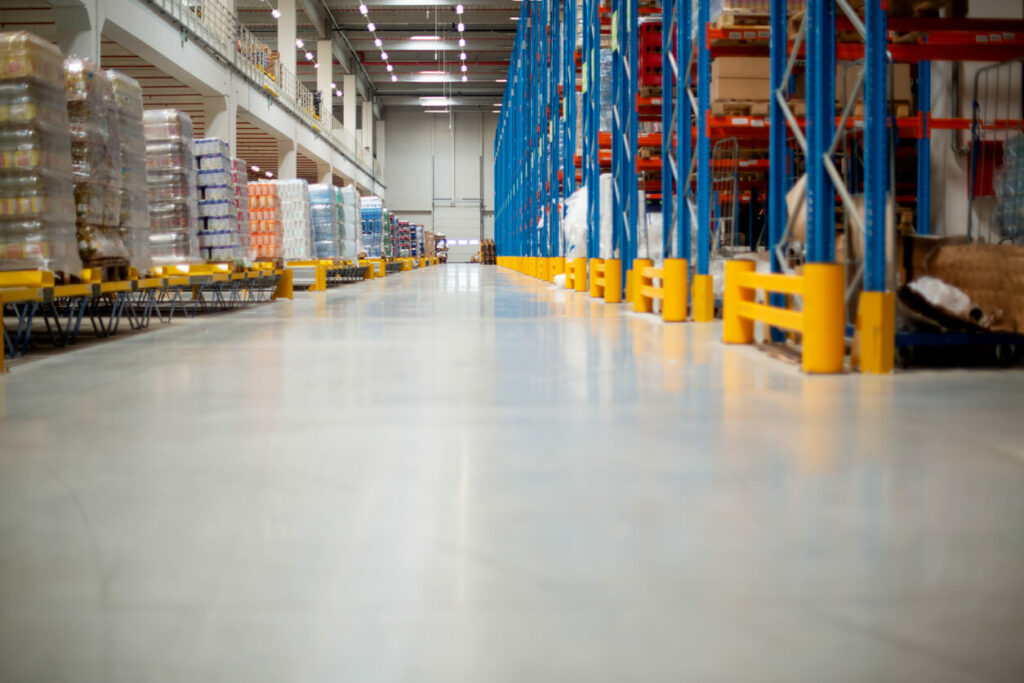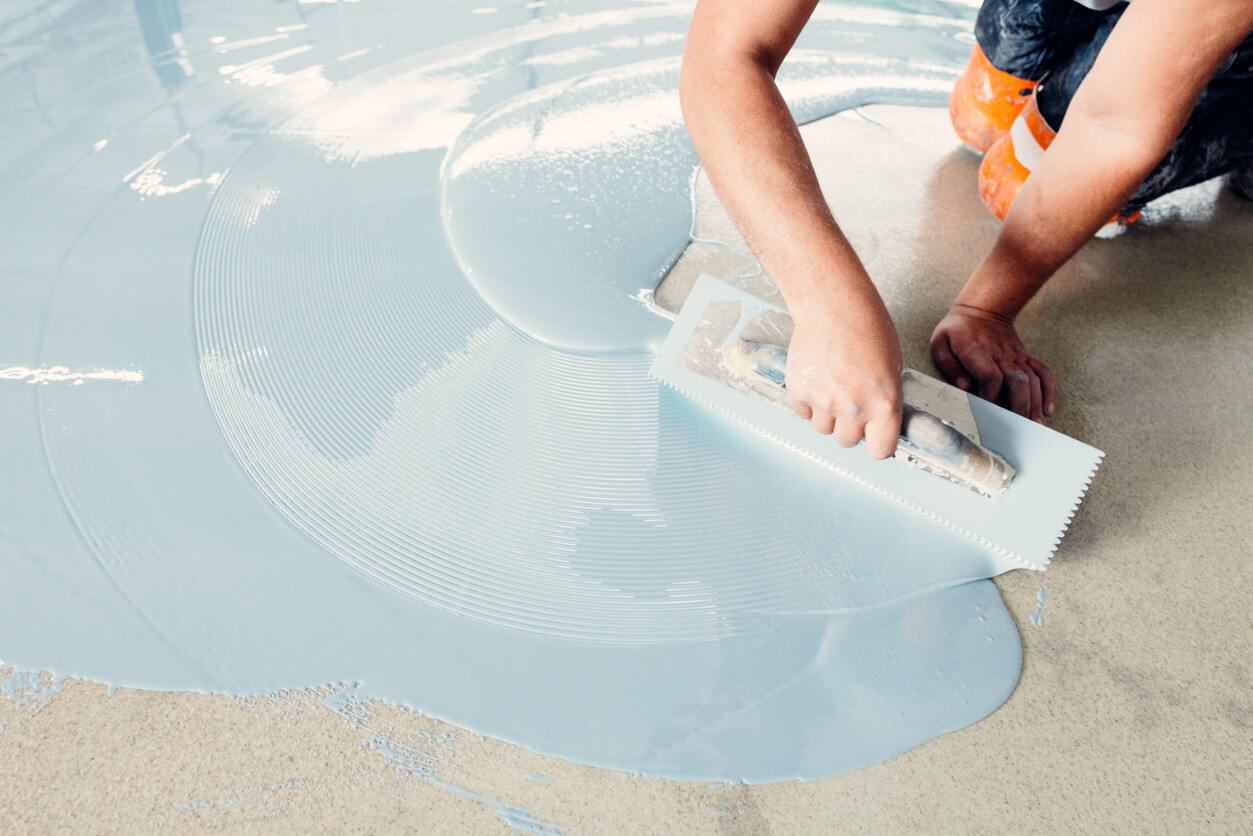
Meeting the Demands of Modern Logistics with Industrial-Grade Warehouse Flooring
News
Warehouse flooring is a fundamental yet often underestimated part of modern logistics infrastructure. As fulfilment...
Read More
In heavy-duty environments like warehouses, manufacturing plants, and food processing sites, flooring plays a fundamental operational role. Commercial epoxy flooring delivers unmatched durability, hygiene, and chemical resistance in settings where other surfaces fail.
It helps reduce downtime, supports your safety goals, and gives you a seamless, low-maintenance surface that stands up to daily use.
Commercial epoxy flooring offers a powerful combination of durability, hygiene, and design flexibility. Here’s why it’s a preferred choice for businesses across industries:
If you’re prioritising performance or compliance, epoxy flooring adapts to your operational needs.
Epoxy is a popular choice for:
Epoxy flooring is versatile enough to serve multiple industries. Common applications include:
Each of these settings presents different demands, but epoxy’s flexibility ensures performance across all.
According to the HSE, slips and trips cost UK employers millions annually in lost productivity and injury claims. Epoxy flooring, when correctly specified, can directly reduce those risks in regulated environments.
Compared to alternatives like vinyl, tiles, or polished concrete, commercial epoxy flooring stands out in several key areas:
If your priority is resilience, hygiene, and minimal maintenance in a high-stress environment, epoxy flooring usually offers the best overall performance.
If you’re already thinking about epoxy but unsure where to start, this is a good point to check in with a professional. Even a quick consultation can help identify challenges you hadn’t anticipated and ensure your specification fits your business goals.
To ensure the best outcome, ask the following before committing:
An experienced installer will help assess these factors to recommend the right system for your space.
Proper installation directly impacts the longevity and safety of commercial epoxy flooring. Working with a specialist ensures:
A poorly installed epoxy floor can lead to costly repairs, surface failures, or safety risks. Choose a provider with proven commercial experience and industry-grade materials.
With the right preparation and maintenance, commercial epoxy flooring can last between 10 and 20 years, even in high-traffic environments. Its longevity depends on factors such as substrate condition, frequency of cleaning, type of use (e.g., forklifts, chemicals), and quality of installation.
Regular cleaning and occasional re-coating can extend the lifespan significantly. In contrast to vinyl or tile, epoxy does not peel, shift, or require frequent replacement, making it a long-term investment for businesses that want durability without constant disruption.
Yes. Commercial epoxy flooring is commonly used in food production, commercial kitchens, and beverage plants due to its non-porous, seamless finish that prevents bacterial growth. Many systems are certified to meet hygiene regulations, including HACCP.
Anti-slip additives improve safety in wet zones, and epoxy’s chemical resistance handles regular disinfecting and acidic spills. Choosing the right formulation and installer ensures compliance and performance in line with food safety audits.
Before installation, avoid these common issues:
If you’re considering epoxy for your space, it’s worth getting an expert opinion. A short conversation could help you avoid future disruption and ensure you get the right spec first time. Reach out to us for a free advice at +44 1622 747909!
Downtime caused by flooring failure can disrupt operations and cost money. Epoxy offers a reliable, long-lasting surface that’s built to handle demanding conditions.
Commercial epoxy flooring delivers long-term value by supporting safety, hygiene, durability, and regulatory compliance. It protects your assets while performing under pressure.
Want a floor that lasts, performs, and meets the demands of your business? Contact us via 01622 747909 or [email protected]. Let’s talk through your options and build a solution that works practically and long-term.
Lorem ipsum dolor sit amet, consectetur adipiscing elit.

News
Warehouse flooring is a fundamental yet often underestimated part of modern logistics infrastructure. As fulfilment...
Read More